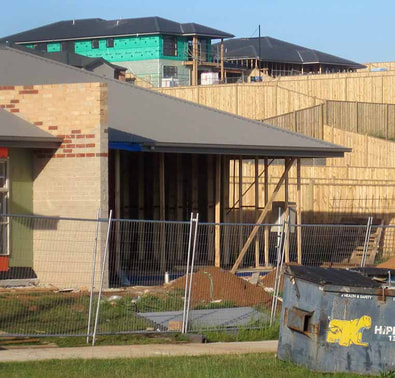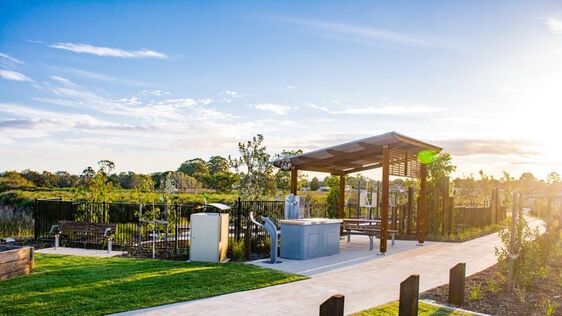 With Wonthaggi forecast to be the next Geelong, “progress by property developers” isn’t good enough for the next generation of residents.
With Wonthaggi forecast to be the next Geelong, “progress by property developers” isn’t good enough for the next generation of residents. By Joan Woods
OUR souls and spirits are revitalised and calmed by beauty. That’s why we live in Bass Coast, but our towns are getting busier. With Wonthaggi forecast to be the next Geelong, we must be proactive in advising the Bass Coast Council of what we love about our town and how we can retain it.
One resident has described the present situation in Wonthaggi as “progress by property developers”. While residents’ associations and individuals can object to developers’ plans, and councils can reject inappropriate developments, disappointed developers almost always appeal to the Victorian Civil and Administrative Tribunal, which has the last word.
OUR souls and spirits are revitalised and calmed by beauty. That’s why we live in Bass Coast, but our towns are getting busier. With Wonthaggi forecast to be the next Geelong, we must be proactive in advising the Bass Coast Council of what we love about our town and how we can retain it.
One resident has described the present situation in Wonthaggi as “progress by property developers”. While residents’ associations and individuals can object to developers’ plans, and councils can reject inappropriate developments, disappointed developers almost always appeal to the Victorian Civil and Administrative Tribunal, which has the last word.
It’s imperative, therefore, that objectors state their cases in clear terms. We can’t afford to see this plethora of subdivisions in our part of Gippsland develop into a free for all and the Lucky Country to turn sour for our future residents.
The norm in new subdivisions is big houses on small blocks of land, roof top after roof top. “The everlasting glory of the stars” is now rarely visible from windows in crowded subdivisions. The preferred grid design of streets is destroying natural vistas and patterns of living.
In the old part of town, quarter-acre (1000-square-metre) blocks are being subdivided to fit two or three residences. In a world which is ever more crowded and where land is almost too valuable, few people have the time or desire to maintain large gardens any more.
But putting houses too close together makes people feel caged and isolated. It makes them want to be anonymous and private, as happens in cities; then loneliness sets in.
I contend that this must be replaced by the “vision splendid”: open spaces in new estates, adequate green wedges and parks with walking access to all facilities. It’s not just sporting ovals we need but green wedges and park land where residents can view natural beauty and feel its impact on the soul. This is not to ignore the bush areas we are so lucky to have but merely to make the same access available to all our residents.
Elderly people, tourists and those with young children need parks with defined pathways to wander along in areas near or in new subdivisions. As car numbers rise, we should be able to walk around our streets without fear of being run over. Retarding basins/areas with long grass need to be redefined as recreational areas with trees and benches – trees for cleaning the air we breathe and seats for people to take ten minutes out of their busy days. Air spaces for people and for the earth to regenerate.
The norm in new subdivisions is big houses on small blocks of land, roof top after roof top. “The everlasting glory of the stars” is now rarely visible from windows in crowded subdivisions. The preferred grid design of streets is destroying natural vistas and patterns of living.
In the old part of town, quarter-acre (1000-square-metre) blocks are being subdivided to fit two or three residences. In a world which is ever more crowded and where land is almost too valuable, few people have the time or desire to maintain large gardens any more.
But putting houses too close together makes people feel caged and isolated. It makes them want to be anonymous and private, as happens in cities; then loneliness sets in.
I contend that this must be replaced by the “vision splendid”: open spaces in new estates, adequate green wedges and parks with walking access to all facilities. It’s not just sporting ovals we need but green wedges and park land where residents can view natural beauty and feel its impact on the soul. This is not to ignore the bush areas we are so lucky to have but merely to make the same access available to all our residents.
Elderly people, tourists and those with young children need parks with defined pathways to wander along in areas near or in new subdivisions. As car numbers rise, we should be able to walk around our streets without fear of being run over. Retarding basins/areas with long grass need to be redefined as recreational areas with trees and benches – trees for cleaning the air we breathe and seats for people to take ten minutes out of their busy days. Air spaces for people and for the earth to regenerate.
Green wedges with a group of trees or a flower bed bring much needed space which relaxes rather than stresses nearby households. Bigger parks with trees and benches are a relaxant, adding to the sum total of air space in the shire.
This will bring life into its proper perspective. We don’t want to lose the harmonious and friendly atmosphere that has so enriched the people of our town in the past.
One of Wonthaggi’s strengths has been its family ties. But a feature of modern society is that families are spread far and wide, which can intensify that isolation. Henceforth there will be a greater mix of family structures which have to be anticipated, accepted and planned for.
Not everyone has a family. Nor does everyone want to be a volunteer or a connected member of the town in which they live. They, too, must be catered for. A park bench under a shady tree is a friendly resting space to gather one’s thoughts and be calmed by nature.
We are all busy with our own lives but our town is at a critical juncture. We should think about what we are prepared to live with and spell it out.
Quotes are from Dorothea MacKellar’s My Country.
This will bring life into its proper perspective. We don’t want to lose the harmonious and friendly atmosphere that has so enriched the people of our town in the past.
One of Wonthaggi’s strengths has been its family ties. But a feature of modern society is that families are spread far and wide, which can intensify that isolation. Henceforth there will be a greater mix of family structures which have to be anticipated, accepted and planned for.
Not everyone has a family. Nor does everyone want to be a volunteer or a connected member of the town in which they live. They, too, must be catered for. A park bench under a shady tree is a friendly resting space to gather one’s thoughts and be calmed by nature.
We are all busy with our own lives but our town is at a critical juncture. We should think about what we are prepared to live with and spell it out.
Quotes are from Dorothea MacKellar’s My Country.
